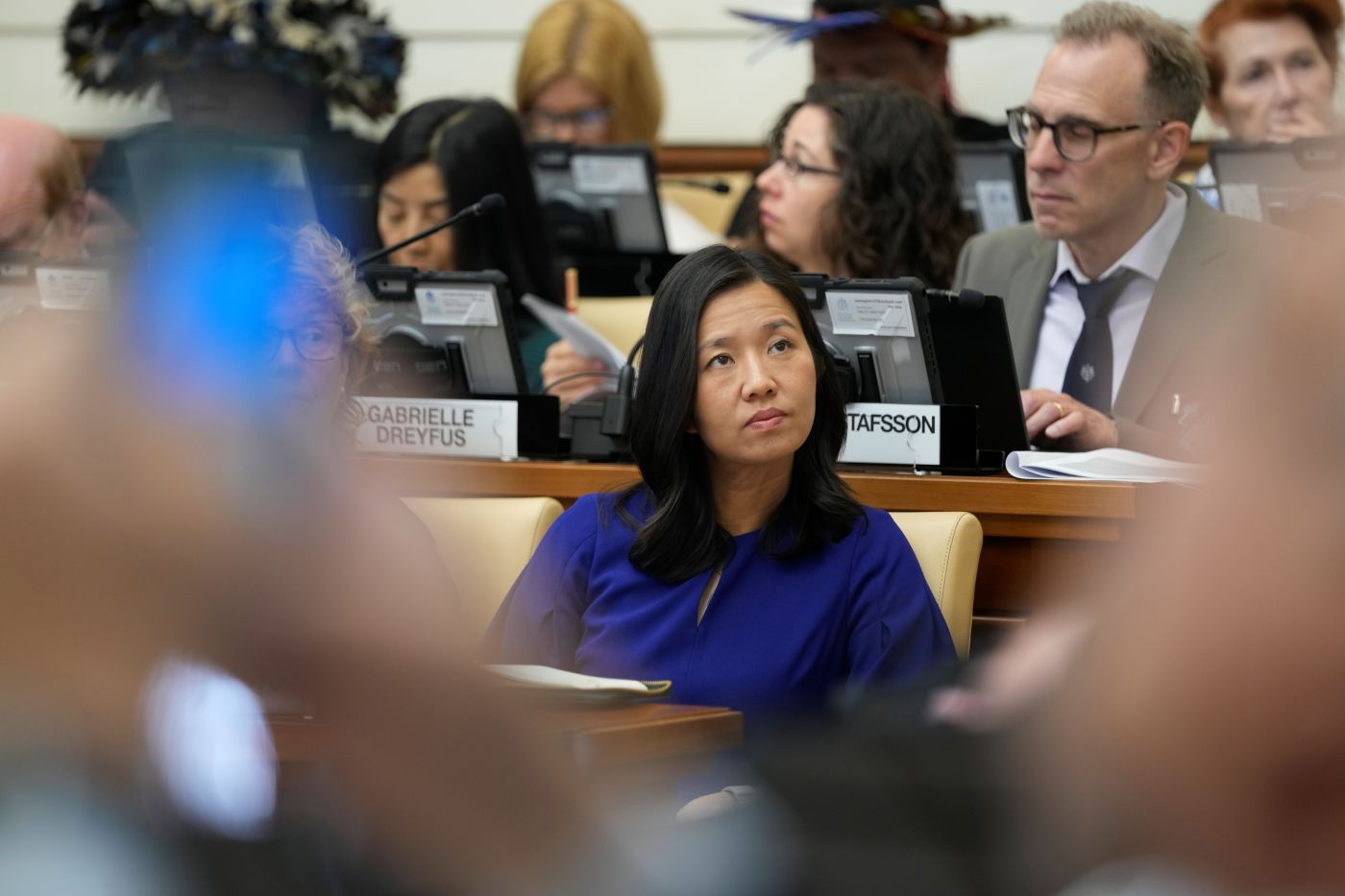
Gaskin: Celebrating successes of Asian women in America
As we wrap up Asian American, Native Hawaiian, and Pacific Islander Heritage Month (AANHPI), we can celebrate Mayor Michelle Wu as one of the most influential Asian American women in the U.S. She’s in the company of Vice President Kamala Harris, Federal Trade Commission Chair Lina Khan, U.S. Trade Representative Katherine Tai and Acting Labor Secretary Julie Su. Three Fortune 500 CEOs are Asian women.
These successes, however, belie the challenges Asian women face. Despite high-profile successes in Hollywood, e.g. Sandra Oh, Mindy Kaling, Lucy Liu, Linda Park, Maggie Q, Awkwafina, Constance Wu and Michelle Yeoh, to name a few and being labeled, “the model minority,” it’s not enough to change the perception of Asian women as soft-spoken and submissive. They have an uphill battle to be seen as leaders in business, religion, politics, the military, and education. We can counter this by showcasing Asian women in leadership positions and challenging the stereotypes perpetuated by the media.
AANHPI Month usually brings attention to the long and complex history of discrimination against Asians in America. This history includes various forms of prejudice, exclusion, and physical violence, particularly intensified since the onset of COVID-19. It wasn’t until an Asian woman shared her daily experiences with me that I fully grasped the magnitude of the problem. The tragic 2021 Atlanta spa shootings by Robert Aaron Long offered a brief glimpse, but barely scratched the surface. While I was aware of the historical legal discrimination against Asians in the U.S., I had overlooked the fetishization and sexualization of Asian women.
The stereotype of Asian women as compliant, combined with the vulnerability of poverty, make Asian women particularly exposed to exploitation as escorts, prostitutes, and masseuses, supporting a significant sex trade in Asian countries and a large market for Asian brides.
The U.S. Department of State and various NGOs report significant participation by American men in sex tourism in these regions. Precise numbers regarding the involvement of American men in sex tourism in Asia are challenging to determine due to the illicit nature of the activity and limited reporting. However, estimates provide some insight into the scale of the issue.
Globally, the sex tourism industry is substantial. Asian destinations such as Thailand, the Philippines, Cambodia, Laos, and Indonesia are significant hubs for sex tourism, which is estimated to contribute between 2-14% of the GDP in these countries.
Bangkok is often labeled the world’s unofficial sex capital. Other common destinations include Vietnam and Nepal.
The hundreds of thousands of men from Western countries who make such trips often hold positions of power in the workplace and their bias of seeing women as sexual servants but not leaders comes back home with them.
The Page Act of 1875, the first restrictive federal immigration law in the U.S., was a significant barrier for Asian women seeking opportunities in America. The Act forbade the “importation” of women for “immoral purposes” and gave immigration officials the authority to determine if an Asian woman was being trafficked for prostitution. This law, along with media portrayals of Chinese people as morally inferior, made it easy for officials to label any Asian woman as a potential moral threat, reinforcing sexualized stereotypes and misogyny for decades.
Americans wanted cheap Asian labor but not Asian families, leading to restrictive immigration laws against Asian women. The scarcity of Asian women compared to men created a market for prostitutes, which sex traffickers were eager to fill. The demand for Asian prostitutes was further fueled by American military men in the Asia-Pacific region, shaping millions of American men’s perceptions of Asian women. This was compounded by stereotypical images of Asian women in the media.
We need to highlight the remarkable contributions of Asian American women who are challenging these sexist, racist, and harmful stereotypes
By celebrating their achievements, we can inspire future generations and foster a more inclusive and equitable society. It’s time to recognize and uplift the voices and stories of Asian American women who have made, and continue to make, significant contributions to our country. Their leadership and accomplishments should be a central focus during AANHPI Heritage Month and beyond.
Ed Gaskin is Executive Director of Greater Grove Hall Main Streets and founder of Sunday Celebrations.
Vice President Kamala Harris speaks during a campaign event in Elkins Park, Pa., earlier this month. (AP Photo/Matt Rourke, File)

